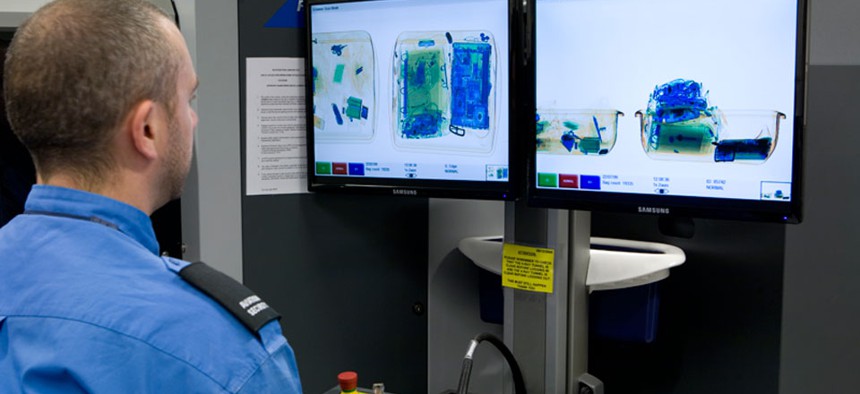Congress Grills TSA on Chinese-Made Luggage Scanner Parts

The Rapiscan 620DV is one of the systems sold by the firm. Rapiscan Systems
About 250 systems sold by Rapiscan are installed inside U.S. airports nationwide.
This story has been updated with comments from TSA and Rapiscan.
A House committee is pressing the Transportation Security Administration for answers on allegations that a vendor has supplied about 250 baggage screening systems containing Chinese-manufactured parts that could facilitate espionage or sabotage.
TSA recently withdrew a roughly $60 million order for an additional 550 X-ray inspection machines, according to the contractor, Rapiscan Systems. The firm is widely known for providing the now-banned body scanners that pictured fliers nude. Rapiscan apparently lost the new job after the agency found the bag machines housed unapproved and untested components.
Now the House Homeland Security Committee has asked TSA Administrator John Pistole and Acting Homeland Security Department Secretary Rand Beers to turn over by Friday documents detailing system risks.
"Questions remain about how the situation will be rectified and the potential for unmitigated threats posed by the failure to remove the machinery," the committee's Republican and Democratic leaders wrote in a Dec. 6 letter to the men. "It is our understanding that these new components -- inappropriately labeled with the same part number as the originally approved component -- were entirely manufactured and assembled in the People's Republic of China."
The lawmakers said they are under the impression that Johns Hopkins University specialists are working with TSA to determine if the systems can enable spying or disrupt security operations.
Among the items committee members have requested are all documents related to risk assessments of the machines' “potential for sabotage or espionage attempts.” They also called for a parts list and description of the parts outsourced to China. In addition, the lawmakers would like to see a TSA Nov. 20 "show cause notice" sent to Rapiscan that asserts the company violated contractual obligations.
TSA officials on Sunday said they will respond to members directly and declined to specify the infractions that prompted the cancellation.
Late Sunday, Rapiscan officials said TSA knew the baggage scanners would include Chinese parts before placing the order.
"Rapiscan proposed to TSA that it was our intention to use X-ray generators manufactured in China, and TSA awarded the delivery order to Rapiscan," Brad Buswell, president of Rapiscan aviation products, said in a statement. "The referenced component is the X-ray generator, a simple electrical item with no moving parts or software."
He described the piece as "effectively, an X-ray light bulb."
Regarding concerns about farming out production to a China-based company, Shanghai Advanced Non-Destructive Testing, Buswell contended the same merchant also sells generators to Rapiscan’s competitors.
Rapiscan lost the deal, according to Buswell, because the firm failed to inform the agency before using an upgraded piece. "While the component change was vetted by internal quality assurance, Rapiscan did not meet the contractual requirement of notifying TSA in advance," he said. Rapiscan leaders, later, did admit to the agency they were responsible for a "procedural lapse."
"In line with the federal acquisition regulations, TSA has terminated an order with Rapiscan for X-ray equipment used for screening carry-on baggage, due to a violation of contractual requirements," agency officials said in a written statement. "TSA has strict requirements that all vendors must meet for security effectiveness and efficiency.”
Rapiscan is a major TSA and Pentagon supplier. Most recently, the Army inked a $42,000 deal on Sept. 27 for two baggage and parcel X-ray machines. The same day, the Defense Logistics Agency awarded Rapiscan $217,200 for undescribed "hazard-detecting instrument” technology.
TSA plans to bar the company from future agency business as a result of the baggage machine incident, according to Friday’s letter.
Compelled by Congress, TSA earlier this year yanked Rapiscan body imaging scanners from all U.S. airports due to privacy concerns.
The discovery that luggage scanners might contain unauthorized Chinese parts comes at a time of heightened supply chain worries. A 2012 Senate Armed Services Committee two-year investigation identified more than 1 million suspect electronic parts -- mostly traced to China -- in U.S. military technologies. Defense companies are racing to comply with a rule that takes effect March 2014 requiring contractors to either develop a new system for detecting counterfeit electronic components or forego payment.






